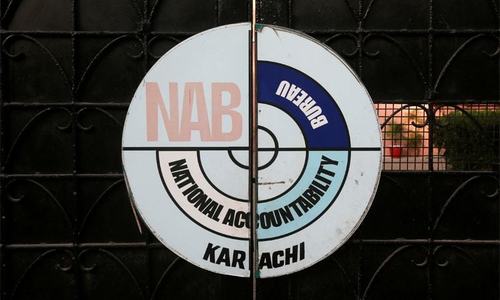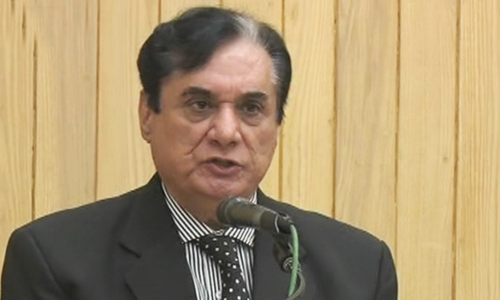ISLAMABAD: The Supreme Court on Thursday asked the National Accountability Bureau (NAB) to justify the criminal prosecution against Shell Petroleum, which had sought to quash a reference against it for selling jet fuel through a third party.
A three-judge SC bench, headed by Chief Justice Umar Ata Bandial, had taken up a petition moved by Shell Petroleum pleading that it was unnecessarily being dragged into criminal proceedings for selling jet fuel to Aero Lube at the behest of their competitor Pakistan State Oil.
The PSO had filed a complaint with NAB that Shell Petroleum was selling JP-1 through a third party (Aero Lube) while it was obliged to sell it directly and only to the aviation sector.
The prosecution, on the other hand, claimed that such sale could only be made to the defence forces or aviation industry.
Wonders how bureau can interfere in ordinary commercial transactions
The apex court postponed further proceedings to March 21 in the hope that NAB would come fully prepared and be able to submit how a criminal prosecution was justified.
On March 10 last year, the Supreme Court had restrained an accountability court in Karachi from passing any final order or judgement against Shell Petroleum.
On Thursday, the apex court also wondered how NAB could interfere in ordinary commercial transactions.
Senior counsel Makhdoom Ali Khan, representing Shell Petroleum, argued that no law, regulation, rule or policy of the government required that his client should sell JP-1 only to the aviation sector. Besides, he added, NAB had failed to point out the violation of any law.
The counsel said the competitor wanted to malign and cause damage to Shell Petroleum, adding that NAB jumped in to aid and assist the state-owned PSO in order to cause damage and loss to the private enterprise.
The counsel contended that the investigation itself revealed that JP-1 was a deregulated product, that there was no law prohibiting its sale to customers from other than the aviation sector, that the PSO itself had sold JP-1 in a similar manner, that no loss of revenue was caused to the exchequer and that the accused gained no financial advantage.
He argued that the trial against the petitioner company was an abuse of the process of law and its continuation a breach of the liberty and rights of the accused.
During the hearing, the SC bench asked advocates Hassan Akbar and Shahnawaz Awan, appearing on behalf of NAB, to point out any law which had been violated.
They submitted that since the trial was at its final stage, the Supreme Court ought not to interfere.
But the bench observed that if no case was made out, it was the duty of the Supreme Court to interfere and that it could do so at any stage.
Published in Dawn, March 4th, 2022












































